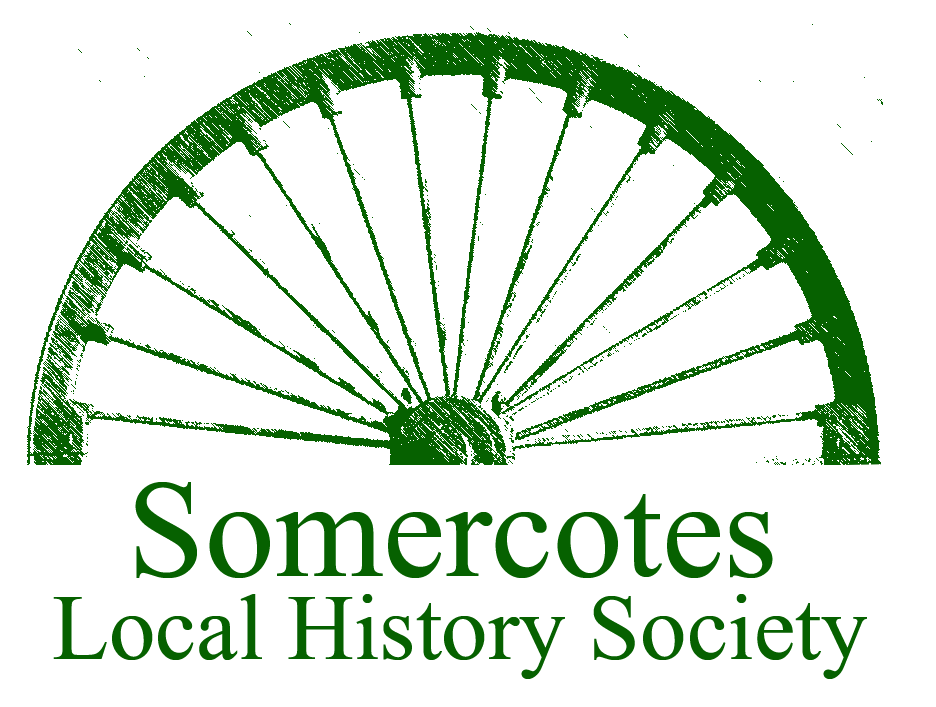






The "Bevin Boys - Mum & Dad" - Memories from Hazel Mors
by Hazel Mors on
Sunday 1 May 2016
It’s strange, but ironic that my Mum and Dad’s lives / stories are intertwined within WW2. Dad was sent from Broughton in Northamptonshire to Cotes Park pit as a Bevin Boy, Mum, Edna Culley was from Riddings, a cadet in the Somercotes Girls Training Corp (GTC) company 646, she worked in the Cotes Park Colliery canteen during the war, where she eventually met my Dad, Raymond Henry Allen.
I remember her telling me when she was on the late shift; the miners would walk home with her to make sure she was safe. How good is that! Not sure I should tell you this, but the basket on her bike was always mysteriously filled with coal.
When Mum and Dad were courting they often went to the pictures at the Empire. Dad who is 90 this year often reminisces about how strict mum’s dad Frank was. Grandad was an air raid warden during WW2; he had been in the Grenadier Guard’s in the latter stages of WW1. Dad laughs about it, he said after the film they had to run all the way from Alfreton to get Mum back home, if they weren’t on the yard for 10 o’clock there was hell to pay! Then Dad would have to walk all the way back home from Riddings to his lodgings in the Bevin Boys huts in Alfreton.
Thankfully for me love conquered all. How many courtships would have endured that today? After the war Mum moved on to be Silver Service trained and head cook at Heanor Grammar School. Dad worked for James Oakes Ironworks later on Stanton Iron works until it closed, then Kennings Tyres in Riddings.
My dad finally received his Bevin Boy medal 60 years after the war; he is 90 years old this year. He was so proud. Although at the time he had wanted so much to go into the Royal Navy. But Mr Bevin had decided otherwise! Many men from all walks of life, like my Dad, whether they wanted to or not, were conscripted and forced into the mines to keep the home fires burning.
The programme was named after Ernest Bevin, a former trade union and then British Labour party politician who was Minister of labour and National Service in the wartime coalition government. At the beginning of the war the Government, underestimating the value of experienced coal-miners, conscripted them into the armed forces. By mid-1943 the coal mines had lost 36,000 workers, and they were generally not replaced due to the availability of cleaner work. It became obvious the miners needed to be replaced. The government made a plea to men liable to conscription, asking them to volunteer to work in the mines instead, but few accepted and the shortage continued.
By December, Britain was becoming desperate for a continued supply of coal both for the war effort and winter at home. It was decided that some conscripts would be directed to the mines. The colloquial name "Bevin Boys" came from the speech Bevin made announcing the scheme:
“We need 720,000 men continuously employed in this industry. This is where you boys come in. Our fighting men will not be able to achieve their purpose unless we get an adequate supply of coal”.
As Britain could not import coal during World War II, the production of coal from mines in Britain had to be increased. The Minister of Labour, Ernest Bevin, decided that a percentage of young men called up to serve in the forces should work in the mines. From 1943 to the end of the war one in ten of the young men called up were sent to work in the mines. This caused a great deal of upset as many of the young men wanted to join the fighting forces and many felt that they were not valued. These conscript miners were given the nickname 'Bevin Boys'. Many suffered taunts as they wore no uniform and were wrongly assumed to be avoiding conscription which was mandatory for young men in Britain. And so, for Mum, my brothers and I, by the luck of the short straw, Dad was conscripted to Cotes Park Colliery. And the rest is History.
In the words of Bob Marley “If you know your History, then you would know where you are coming from. Then you wouldn’t have to ask. Who the heck do I think I am?"
There is a memorial to the Bevin Boys at the Arboretum in Stafford. Which; I have visited this year to celebrate my Dad’s war effort. Lovely!!!!!
Hazel Mors nee Allen
